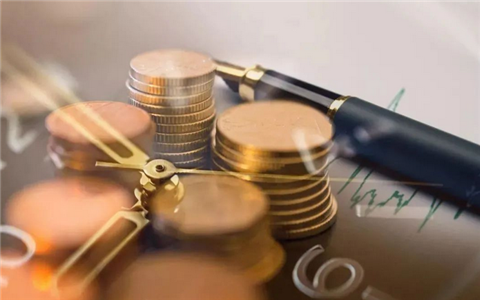 瑞士汝拉州财政补贴项目详解
瑞士汝拉州财政补贴项目详解
瑞士汝拉州财政补贴项目详解 汝拉州(The Canton of Jura)地处瑞士西北部。面积为839平方公里,人口73,500。该州的官方语言为法语。汝拉州距离苏黎世机场约1小时40分钟车程,距日内瓦机场约2小时20分钟车程。同时该州是瑞士最接近巴黎的地区,搭乘火车仅需3个小时就可以到达法国首都。汝拉州拥有悠久的工业传统,制表业为该州的第一产业,同时在微电子技术和自动化等尖端行业中表现突出。超过40%的就业人口集中在上述行业,该地区还雇佣了7000多名跨境的工作者。汝拉州的工业依赖于中小型公司,这些公司充满灵活与创新精神,并专注于为其他公司、生命科学和休闲产业提供服务。在相应法律框架之下,汝拉州经济促进局可为具体项目向公司及机构提供财政资助。此类财政支持旨在促进工业或服务业公司的创建、扩张与选址,并促进汝拉州的经济产品和服务的创新和商业化。财政支持是经济发展的推动力。汝拉州定期对其进行调整,以适应经济发展计划的目标,并紧随经济形势的迅速发展和来自邻近区域的竞争。 发放标准 财政资助可颁发予在汝拉州作商业注册的公司以及在汝拉州内的常设机构。对新设立的(创新)企业,按照《创新企业法》的规定,加大扶持力度。财政资助被授予那些能够创造或重新安置工作岗位的可自持公司。其项目必须具备以下特点: 1. 创新;2. 高附加值; 3. 最终用户市场处于汝拉州之外;4. 符合可持续发展政策。 受益公司承诺在接受资助的全程中,遵守该行业的集体劳动协议,或退而求其次遵守该区域的惯常劳动条件,以及符合法律规定的男女同工同酬条件。对不符合规定条件和不符合《经济发展基金资格条件监督法令》规定的情况,经济劳工局应规定受益人限期改正。在此期间,资助暂停支付。逾期不改者,资助当予以收回,已足额或者部分足额发放的,责令退还。 创新的四个方向 产品创新:创造一新优产品(或服务),或改进现有产品。 工艺创新:实施一种新的生产技术(如产品生产工序的完全自动化),或改进该工艺的某些方面(如质量控制的可靠性)。 组织创新:公司结构和运营方式的战略性提升。 市场创新:以一种新颖的方式营销其产品或服务。 投资规模:1. 在该区域计划或执行的服务、采购、订单或需求; 2. 与项目直接有关的研究和教育机构合作; 3. 与区域经济的协同效应。 利息资助 战略投资的利息补助:最高贷款总额不超过2,000,000瑞郎,最长期限3年,补助比率0-100%。新设企业或收购案的利息补助:最高贷款总额不超过200,000瑞郎,最长期限2年,补助比率第一年100%,第二年80%。汝拉州经济促进局合作处须在发放利息补助前发出通知,除非贷款额在200,000瑞郎以下。初创企业由州经济与劳动办公室发出通知。支付利息也适用于租赁和发放给控股公司的银行贷款,只要这些贷款与生产活动有关(仅适用于现有公司)。对于利息补助的财务资助可一次性予以支付,最高金额不超过50,000瑞郎。 条件: 租用孵化园区,过渡工厂,或者经济与劳动办公室认可的商务中心。或者至少可以接纳2家以上公司的房产投资。 资助金额与期限 最高首两年的租金(不包括附属费用)的50%至100%。第一年最高2万瑞郎,第二年最高1万瑞郎 (创新企业每年最高2万瑞士法郎)。资助直接支付给业主。(若房东同意) 租金可以累计在一起,到期时以股权的形式支付。转租、生产或研发业务在州范围内的搬迁,以及装修房屋的成本(即使包括在租金中)都不包括在补贴内。即使更改公司的法律地位,租金补贴也仅限于两年。 贷款担保 由汝拉州经济促进局合作处担保:最高金额2,000,000瑞郎,最长期限20年。贷款银行为汝拉州州立银行、瓦里安银行、赖费森银行、瑞银或瑞信。用途为投资款。 由中小企业担保合作中心担保:最高金额1,000,000瑞郎,最长期限10年。用途为投资款与运营资本。 由瑞士女性合作公司担保:最高金额415,000瑞郎,最长期限为10年。用途为投资款与运营资本。仅限向女性企业家发放。 条件: 1. 学士或硕士学位,联邦文凭或资格认定同等学历。2. 研究生或硕士学位。3. 管理职位的持有者必须在职位创立期间居住于汝拉州。 对于工作时间在50%或以上的职位(兼职),也可以给予财政资助。对于创建自己的企业的人,或雇佣企业主家庭成员,也可以给予财政资助。每个公司每年允许有一人次补贴,对具有创新企业资格的公司每年有两人次补贴。如果一家公司在获得补助之日起的五年内将其业务迁至汝拉州以外,则该公司应退还补助。补助应扣除1982年6月25日关于强制性失业保险和破产赔偿联邦法律规定的福利金。 2 为实施新项目而创造的职位 条件:合格且具资质的职位;为初创公司、业务拆分、及创新企业等服务的,拥有最低联邦技能证书;该职位获补助时,该职位的持有者必须居住在汝拉州。在该地区几乎没有相应的新业务时: 补助工资的90%,补助其六个月的薪水,每个职位最高30,000瑞郎。如果项目与现有结构相结合:则支付其六个月薪水的60%,每个职位最高20,000瑞郎。原则上,每个公司每年允许有一人次补贴,对具有创新企业资格的公司每年有两人次补贴。此补贴也可以给予那些自己创业的人,或者被雇佣的企业主家庭成员。如果一家公司在获得补助之日起的五年内将其业务迁至汝拉州以外,则该公司应退还补助。条件 首次参与参展。与经济劳动办公室共享展台,或者与其他公共/半公共组织共享展台。将参展商/联合参展商的企业名称列入活动目录/网站。 资助金额 50%的注册费和/或场地租赁费用,最高10,000瑞士法郎。创新企业首次参展的100%注册费和/或场地租赁费用,最高10,000瑞士法郎。官方展台:在特殊活动期间(作为汝拉州特邀嘉宾),资助可覆盖全部包括雇用人员及物流的费用。参展补助适用于在瑞士境外举办的展会或在瑞士举办的,具有国际视角的国际贸易展。参展补助适用于交易会、展会、商业展示以及商业/市场大会每年最多可获两次参展补助 (共享展位不计入其中)。 该文章为搜瑞士网站原创,部分图片摘引自网络媒体的公开资源,如需转载,敬请注明出处。 Sooswiss为您提供 瑞士方向私人管家式的定制服务: 1)家族传承 2)财富管理 3)瑞士投资 4)居留计划 5)税务优化 6)家族治理 更多资讯请登录网站 www.sooswiss.com

 身份规划之澳大利亚篇:政策收紧配额削减,移民澳洲进入“至暗时刻”?
身份规划之澳大利亚篇:政策收紧配额削减,移民澳洲进入“至暗时刻”?
 瑞士汝拉州财政补贴项目详解
瑞士汝拉州财政补贴项目详解
 不仅仅是一张居留证(下)
不仅仅是一张居留证(下)
 瑞士高中文凭与入读大学通道
瑞士高中文凭与入读大学通道